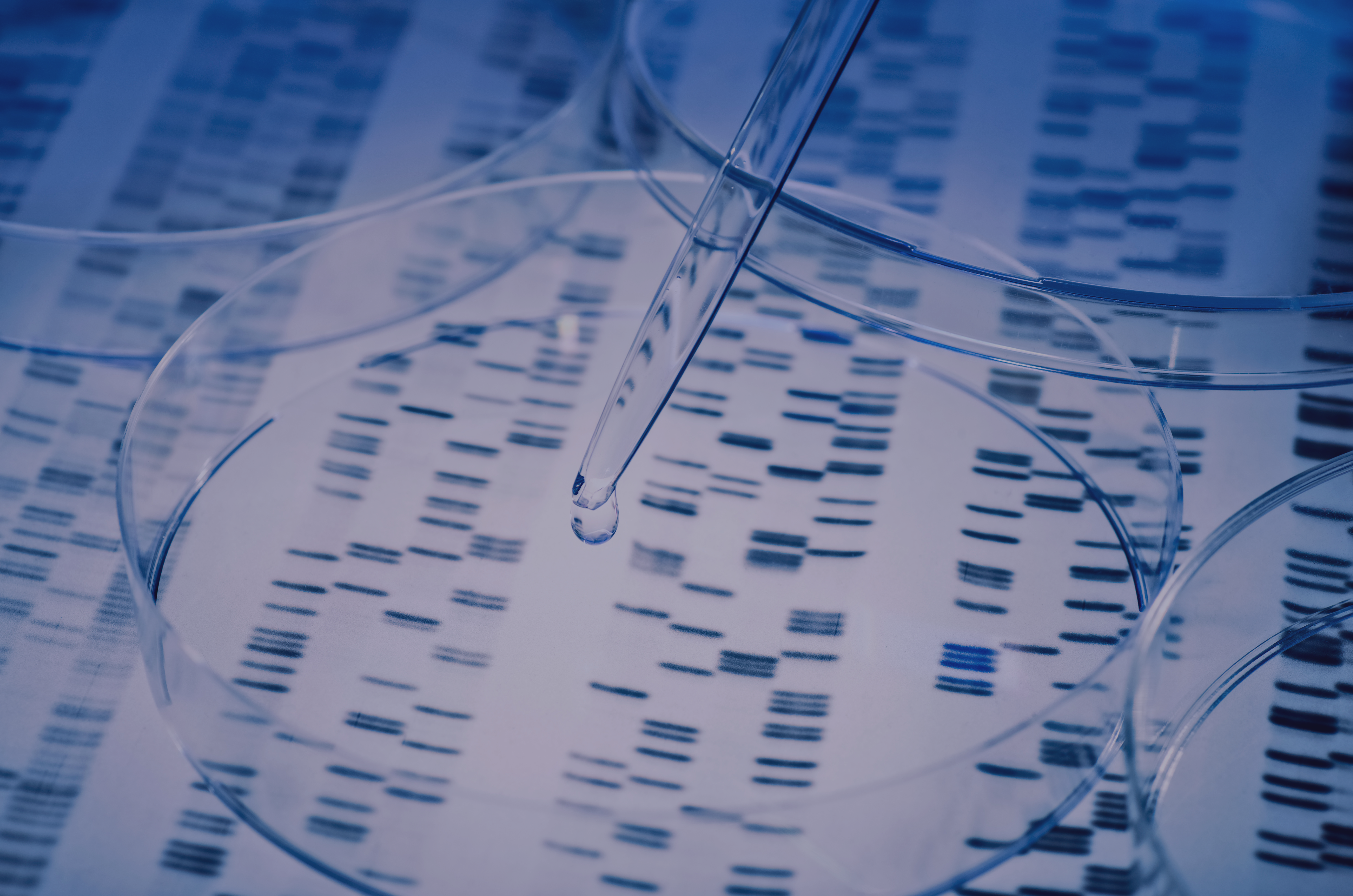We will contact you shortly to schedule a convenient appointment.
Fertigen Men
Testing for genetic infertility in men.
The Fertigen Men test involves the analysis of about 80 genes in which the presence of pathogenic mutations contributes to infertility in men. Awareness of the presence of infertility with a genetic basis makes it possible to take appropriate measures to obtain a pregnancy and give birth to a healthy child.
At theGyncentrum clinic, in addition to the Fertigen Men test, we offer a panel of genetic tests for infertility aimed at women – Fertigen Woman – which includes the analysis of about 150 gen es.

Who is the Fertigen Men infertility panel for?
Get tested for genetic infertility factors if:
- You have abnormal semen parameters
- You have been diagnosed with abnormal testicular development
- You and your partner have been trying unsuccessfully for a child for a long time
- Your partner has experienced several miscarriages
Why perform Fertigen Men?
Molecular testing can detect the genetic cause of infertility. With this knowledge it is possible to:
- Estimate the chances of a natural pregnancy and its delivery
- Determine the direction of further actions aimed at obtaining offspring, such as the use of in vitro procedure, donation of reproductive cells, preimplantation diagnosis, etc.
Get a chance to become a father!
Getyour genes tested and see if your infertility is genetic.
What genes do we test in the Fertigen Men panel?
The Fertigen Men infertility panel includes analysis of the presence of mutations in the following genes:
ADGRG2: this gene encodes a trans-membrane protein specific for the epididymides and controlling their function. Damage to the gene disrupts epididymal function, leading to infertility [1].
CCDC40: mutation in this gene can cause primary ciliary dyskinesia (PCD), a rare genetic disease manifested by disruption of the upper and lower airways. Almost all men with PCD are infertile as a result of lack of sperm motility, but sometimes sperm retain motility [2].
DMRT1: this gene is responsible for sex determination processes in . Located on the short arm of chromosome 9, it encodes the transcription factor DMRT1, which regulates the function of Sertoli cells, or sperm tubule cells in the testes, which are involved in spermatogenesis (the formation of new sperm). Mutation of the gene can lead to abnormal testicular development, XY feminization and 46,XY sex reversal, as well as gonadal dysgenesis and infertility [3].
SRY: the gene is responsible for sex determination in men and initiates testicular development. Mutations occurring in it in most cases lead to sex reversal of XY individuals into female individuals, i.e. Swyer syndrome [4].
Learn moreGATA4: the gene encodes a protein of the same name that activates the expression of the SRY gene. The gene is responsible for embryogenesis, gonadogenesis (including male sex determination) and the normal formation of the heart and coronary vessels. Mutations occurring in it can lead to abnormal testosterone synthesis, abnormal sperm duct formation and gonadal dysgenesis [3].
HS6ST1: mutation in this gene leads to hypogonadotropic hypogonadism, which manifests as slowed or complete disappearance of sexual maturation. This occurs due to a deficiency of gonadoliberin (GnRH), a hormone secreted by the hypothalamus [5].
LHCGR: mutation in this gene is responsible for the underdevelopment of Leydig cells in the testes responsible for the secretion of androgens, the male sex hormones. Along with Leydig cell hypoplasia, a man may develop other genital defects, including spodziectasis, a congenital urethral defect characterized by abnormal localization of the external urethral outlet.
And also in such genes as: AMH, AMHR2, ANOS1, APOA1, AR, AURKC, BLM, BNC2, CCDC141, CCDC39, CDC14A, CEP290, CFAP251, CFAP43, CFAP44, CFAP69, CFTR, CHD7, CYP11A1, CYP11B1, CYP17A1, CYP19A1, CYP21A2, DAZL, DCC, DNAAF11, DNAAF2, DNAAF4, DNAAF6, DNAH1, DPY19L2, FANCA, FANCM, FBXO43, FGF8, FGFR1, FSHB, FSHR, GNRH1, GNRHR, HSD17B3, HSD3B2, HSF2, IGF2, IL17RD, INSL3, KISS1, KLHL10, LHB, MAMLD1, NLRP3, NR0B1, NR5A1, PKD1, PLCZ1, PLXNA1, PMFBP1, PROK2, PROKR2, RSPO1, SEMA3A, SLC29A3, SOX10, SOX2, SOX3, SOX9, SPATA16, SRD5A2, SUN5, SYCP3, TACR3, TEX11, TEX15, TRIM37,K WDR11, WT1, XRCC2, MCM9, ESR2, and DUSP6. In total, about 80 genes in which the presence of mutations may be responsible for male infertility.
Genetic testing for male infertility met. NGS
The test is carried out using the Next Generation Sequencing (NGS) method. The test material is deoxyribonucleic acid (DNA), isolated from the patient’s peripheral blood. The NGS method is now the “gold standard” for finding the cause of infertility in men. With its help, we read the entire coding sequence (exon) of the above-mentioned genes. Testing for genetically determined infertility using the NGS method is performed once, and the result is valid for life.

What if the test reveals a genetic mutation?
Even small changes in genes can result in a lack of offspring. Genetic testing, on the other hand, makes it possible to estimate the chances of getting and keeping a pregnancy, as well as to determine the likelihood of possible defects or diseases in the child. With this knowledge, even at the stage of trying to get pregnant, the doctor can suggest effective solutions to achieve a pregnancy and give birth to a healthy child.
Trying with your partner to get pregnant for more than a year or simply, want to see if you might have fertility problems in the future? Take the Fertigen Men genetic testing panel. If the test reveals a genetic mutation in any of the genes tested, you will be able to consult with a Gyncentrum reproductive medicine specialist. He will discuss the result of the test with you, take a detailed medical history and indicate the most appropriate course of treatment.
Bibliography:
[1] https://www.genecards.org/cgi-bin/carddisp.pl?gene=ADGRG2
[2] https://www.orpha.net/consor/cgi-bin/OC_Exp.php?Expert=244&lng=PL
[3] J. Czarny, Molecular basis of human sex determination and disorders of this process including the role of selected genes, https://ruj.uj.edu.en/xmlui/bitstream/handle/item/272161/czarny_molekular_podloze_determinacji_2020.pdf?sequence=1&isAllowed=y
[4] R. P. Piprek, Genetic basis of sex determination disorders and gonad development, Endocrinologia Polska, 2008, T. 59, no. 6, p. 507.
[5] M. Rabijewski, Endocrinological causes of infertility in men, Fides et Ratio Scientific Quarterly, 2018, no. 3 (35), p. 178.



